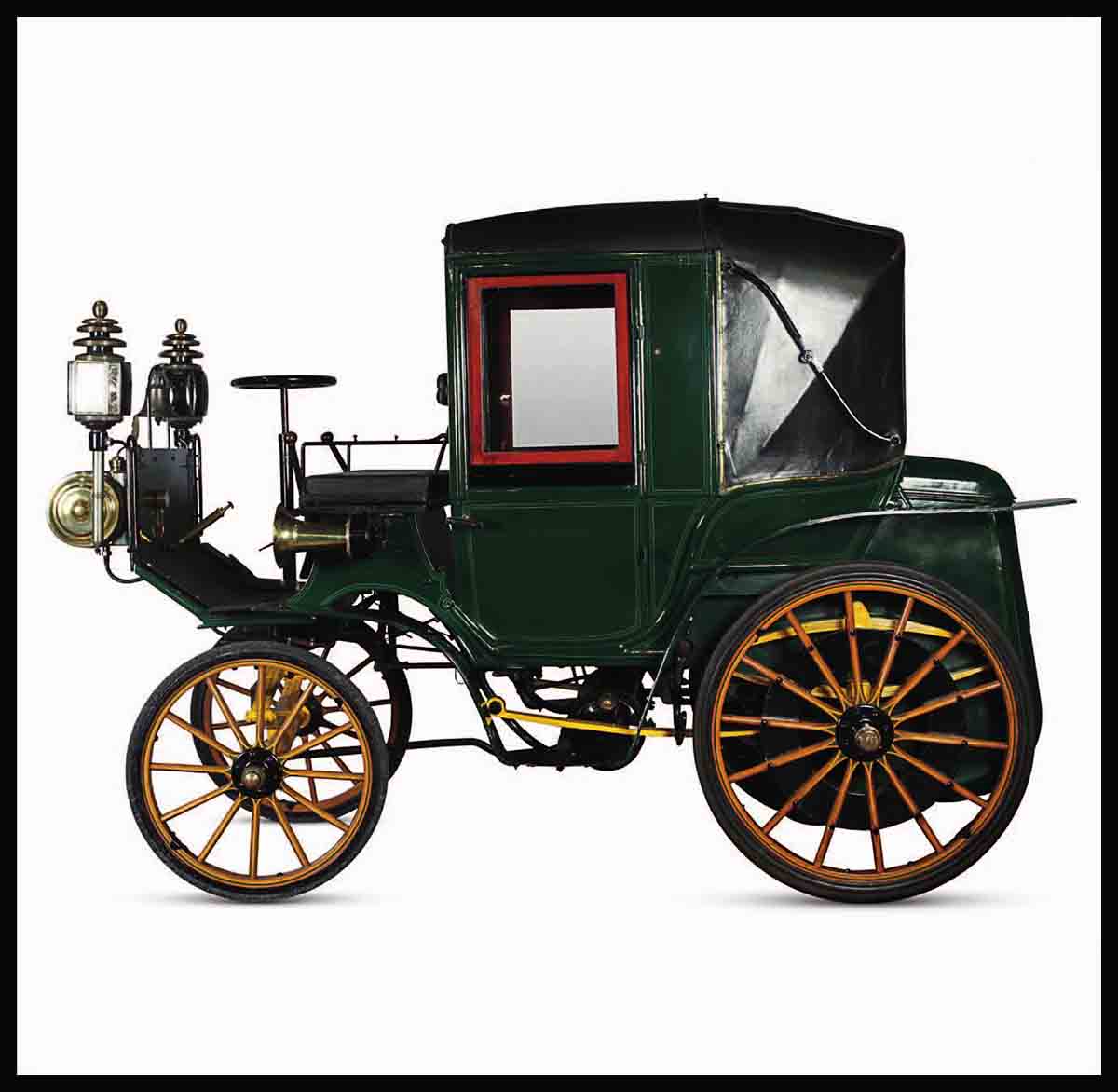
Pioneer Vehicles
The 19th century saw tremendous advances in engineering, as mechanization transformed production in factories. Inventors turned their attention to replacing the horse with something that could go faster and farther. Steam, electricity, and gas were all tried, and in this early period it was hard to say which would win; speed records went first to electric, then to steam.
Daimler Cannstatt 4HP, 1898
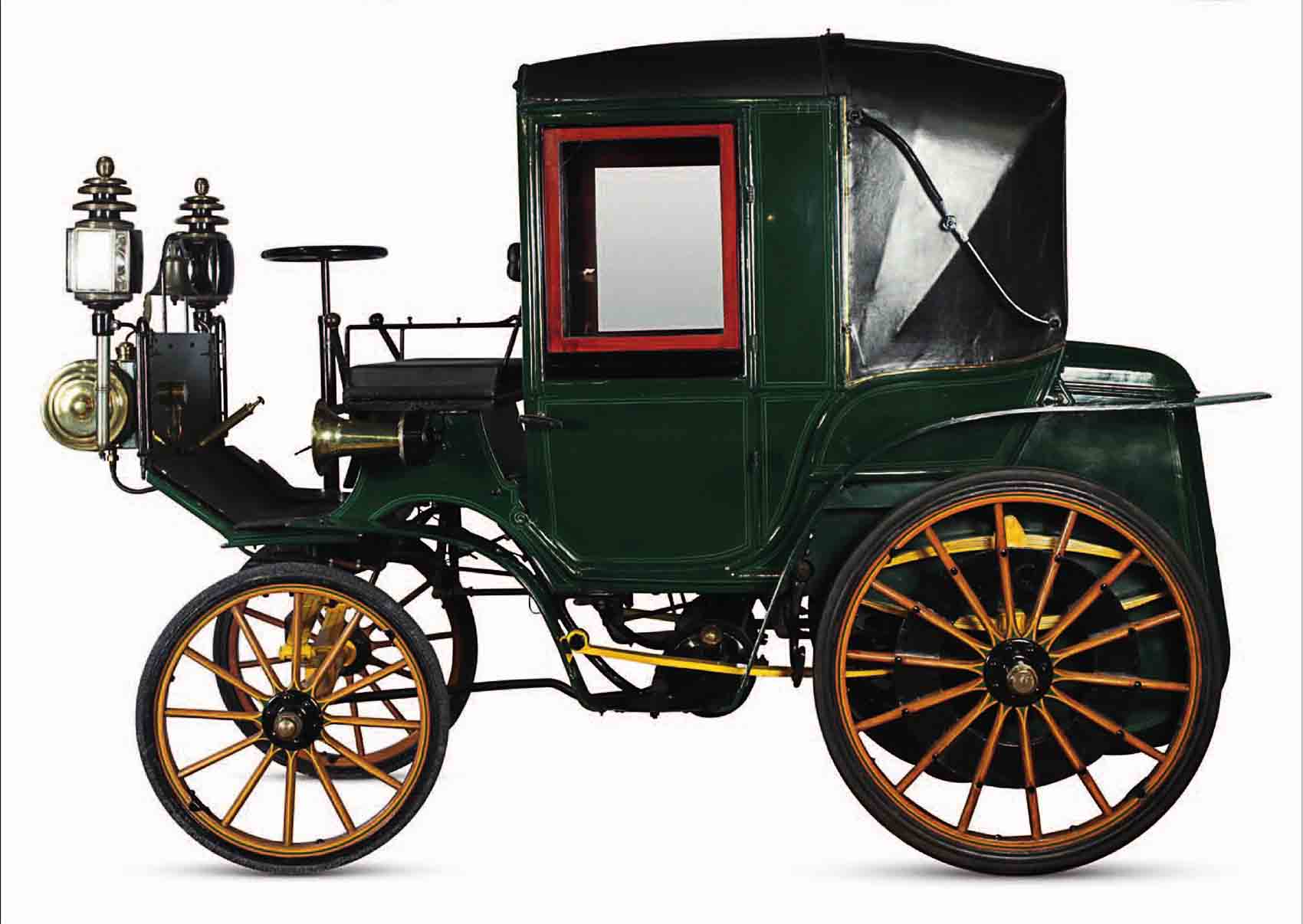
| Origin | Germany |
| Engine | 1,525 cc, V2 |
| Top speed | 16 mph (26 km/h) |
In June 1887, Daimler equipped a workshop for 23 employees in Cannstatt, Stuttgart, to build his engines. The engines were still fitted to modified stagecoaches
Grenville Steam Carriage, c.1880
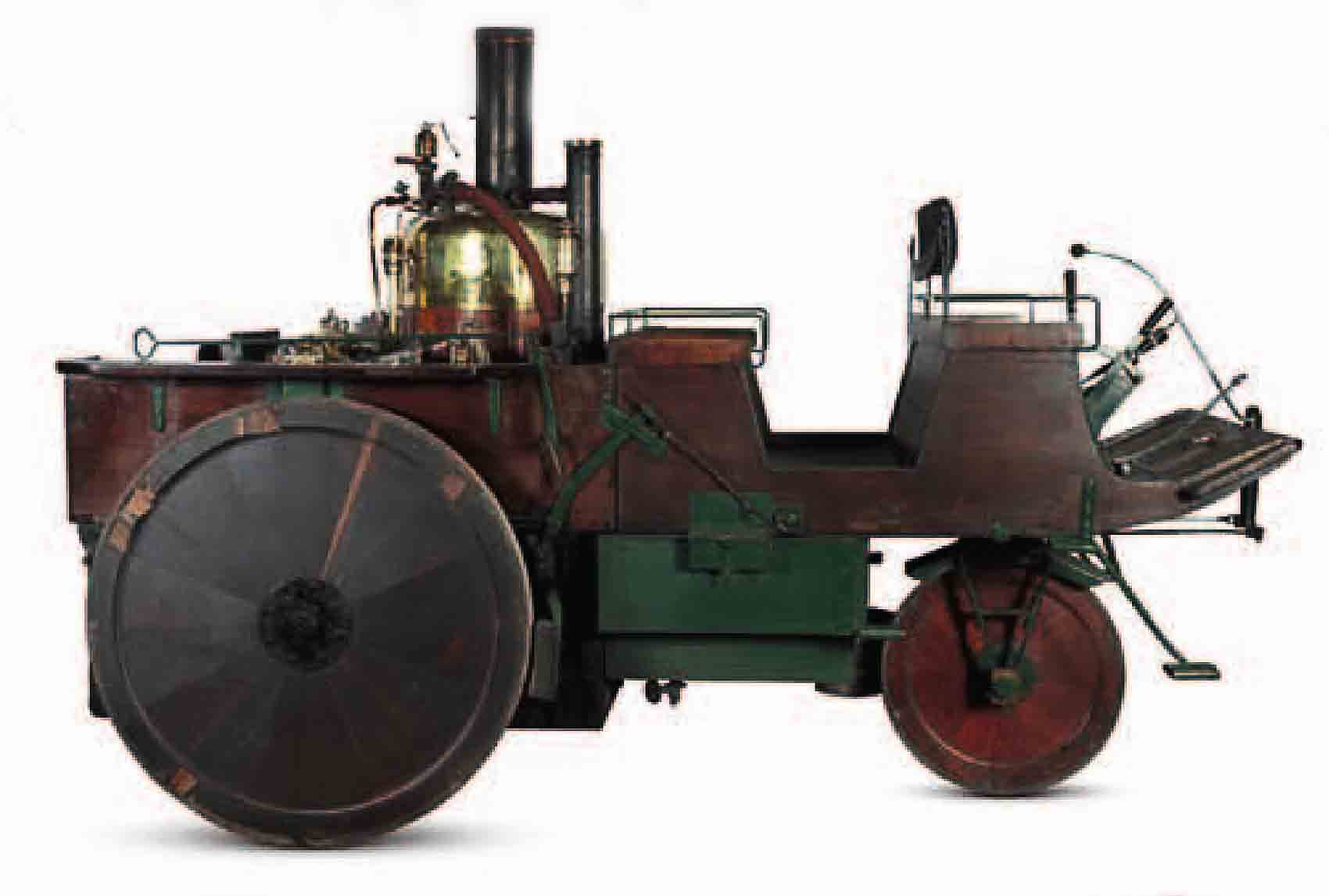
| Origin | UK |
| Engine | vertical steam boiler |
| Top speed | 20 mph (32 km/h) |
Railway engineer Robert Neville Grenville from Glastonbury, UK, was one of dozens of Victorian inventors to build a steam-powered road carriage. Grenville’s vehicle has survived.
Daimler, 1886
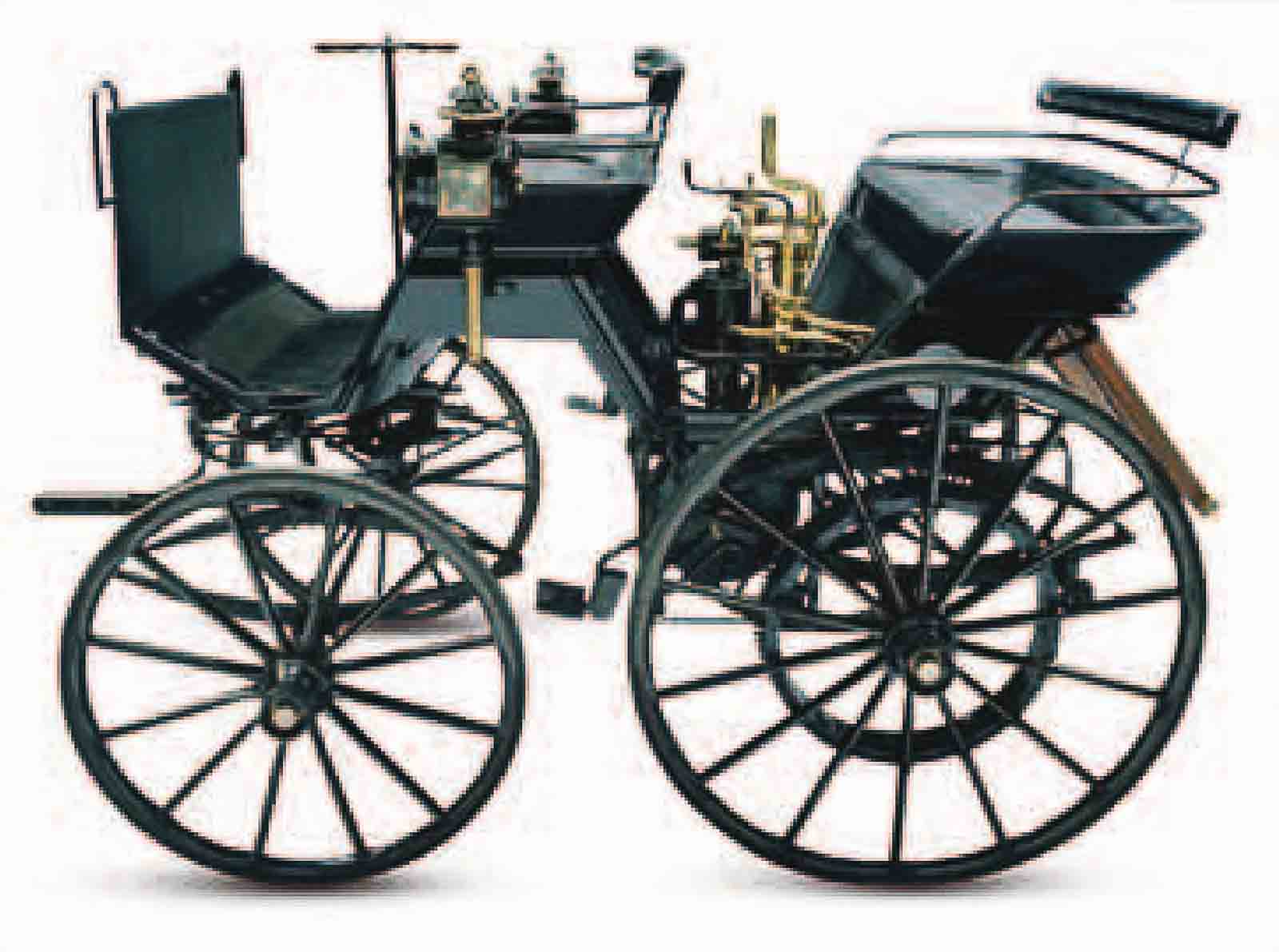
| Origin | Germany |
| Engine | 462 cc, one-cylinder |
| Top speed | 10 mph (16 km/h) |
Gottlieb Daimler and Wilhelm Maybach fitted their engine into a stagecoach in 1886, creating the first four-wheeled, gas-engined vehicle to reach 10 mph.
Stanley Runabout, 1898
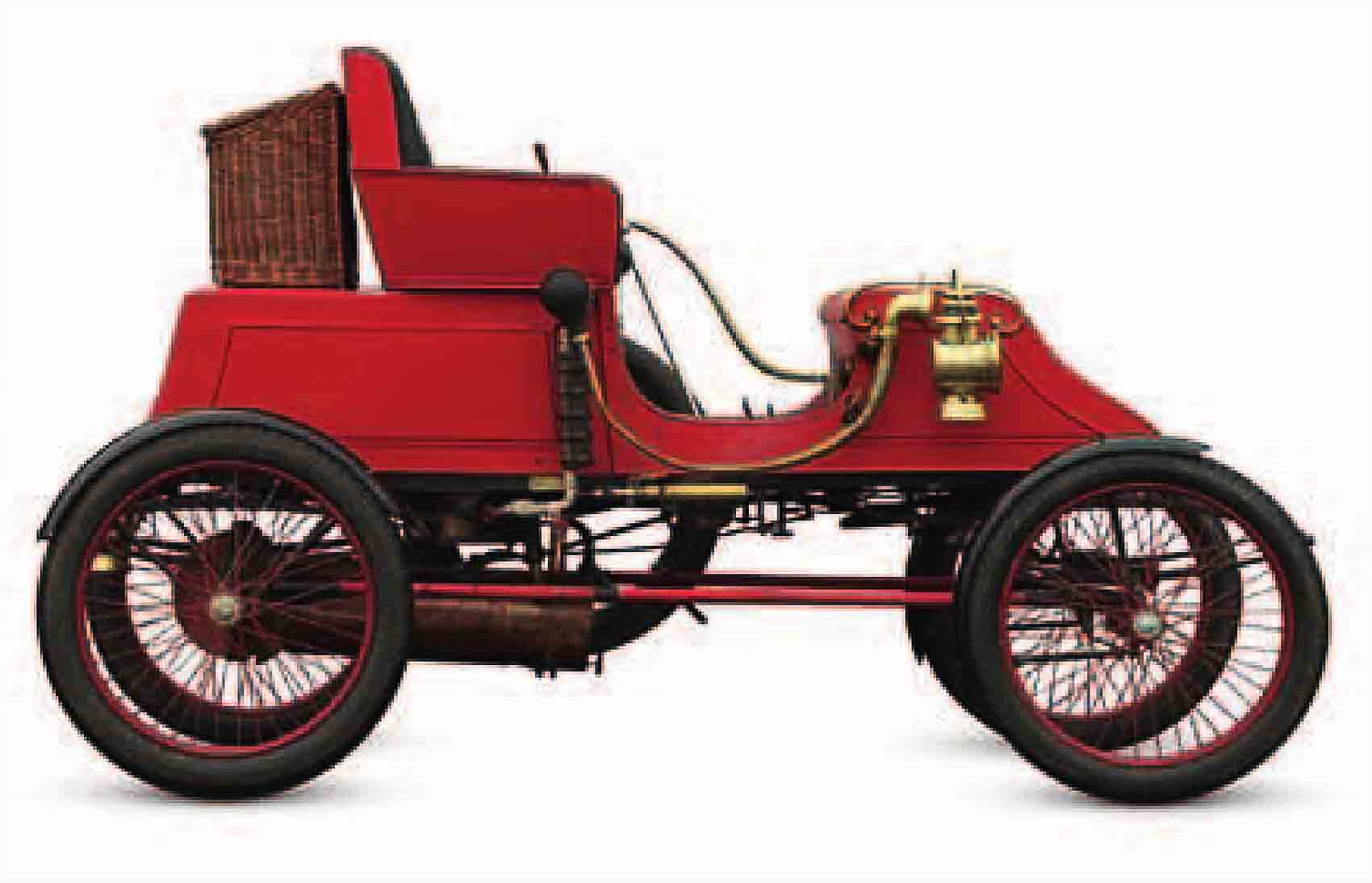
| Origin | USA |
| Engine | 1,692 cc, straight-two steam |
| Top speed | 35 mph (56 km/h) |
Twins Francis and Freelan Stanley built over 200 of these inexpensive and reliable steam cars in 1898-99. In 1906 a more powerful model reached 127 mph (204 km/h).
Franklin Model A, 1902
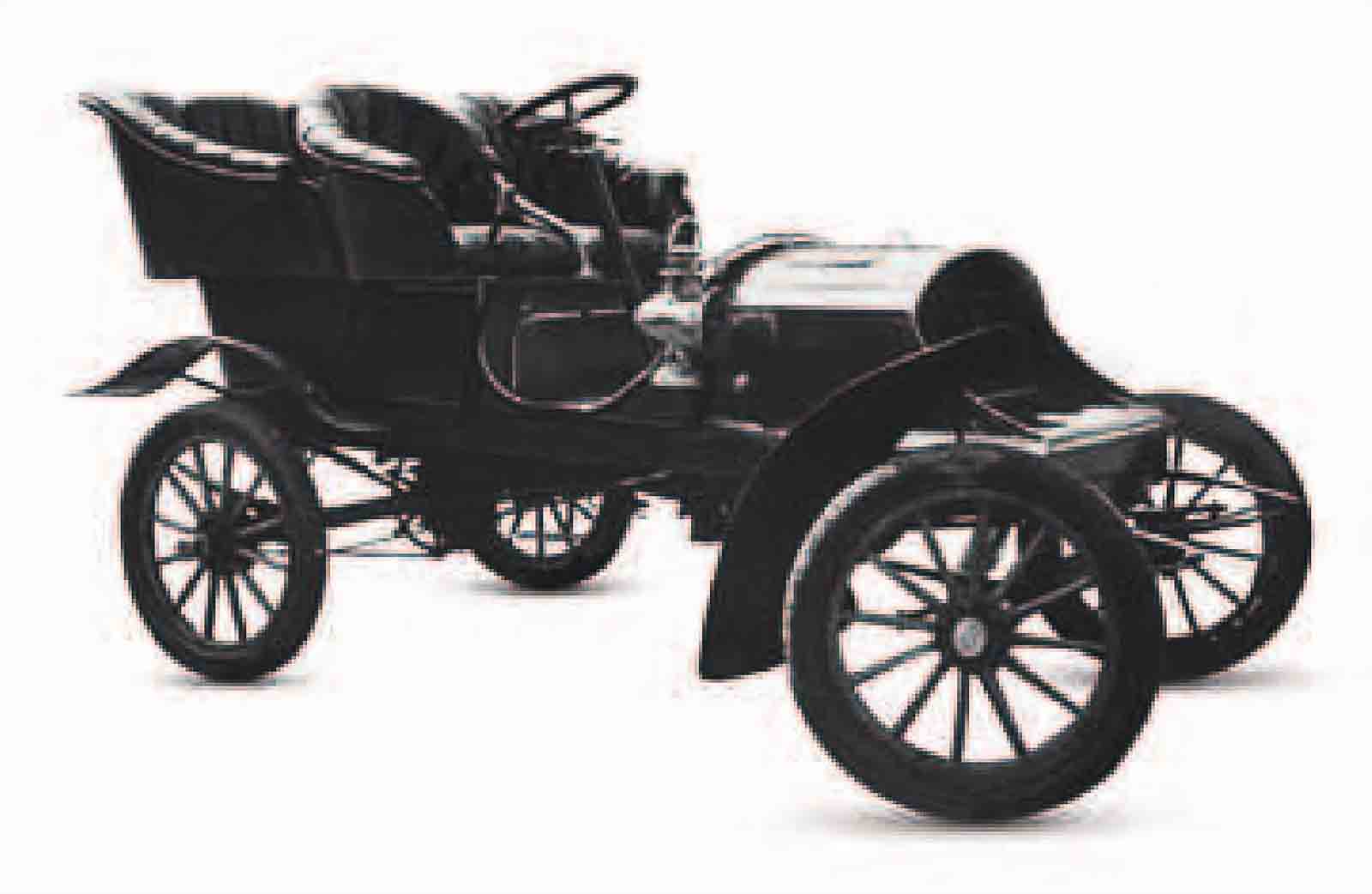
| Origin | USA |
| Engine | 1,760 cc, straight-four |
| Top speed | 25 mph (40 km/h) |
John Wilkinson designed the first four-cylinder car in the United States for Herbert Franklin. The air-cooled engine had overhead valves and was mounted across the wooden chassis.
Benz (replica), 1885
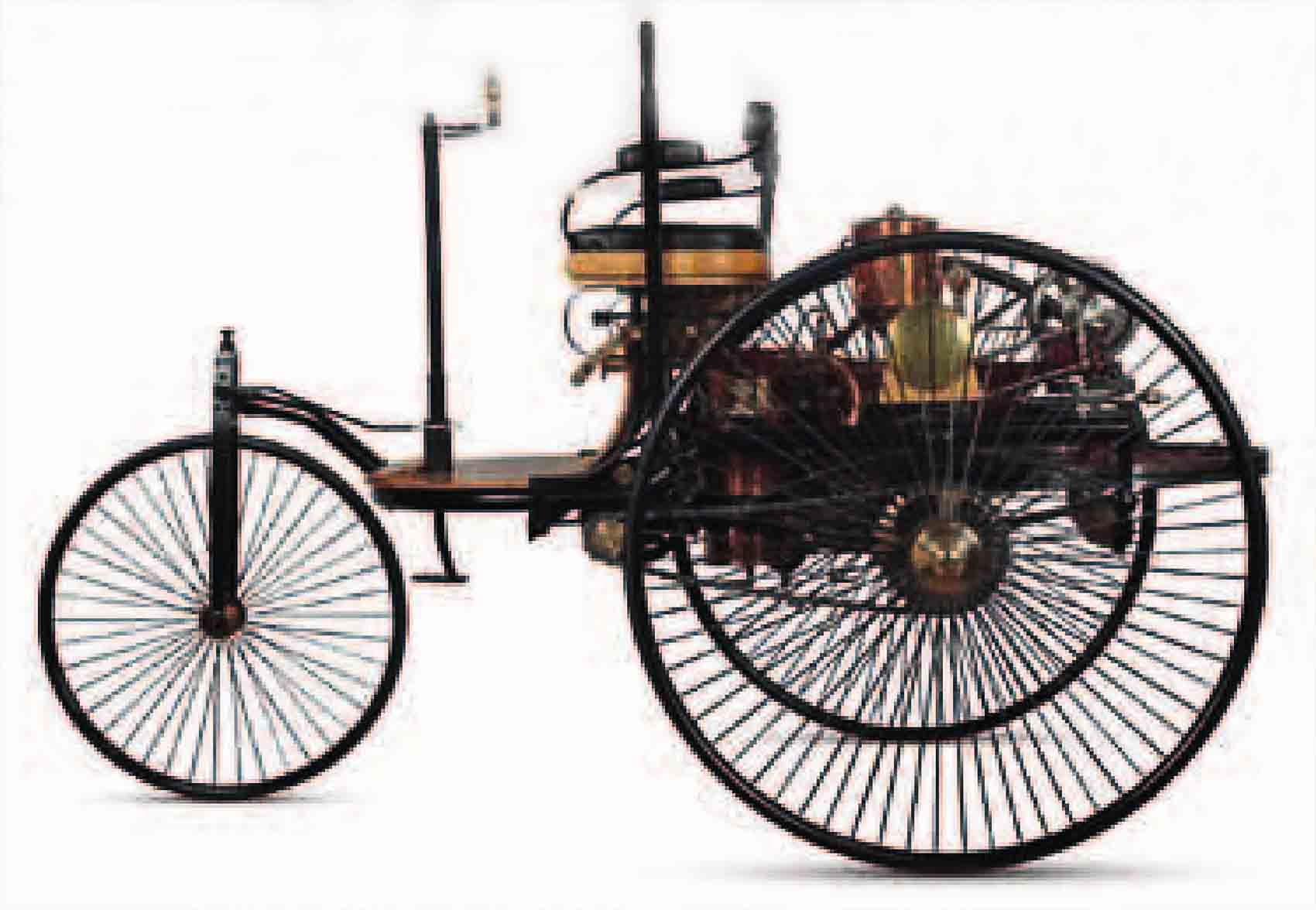
| Origin | Germany |
| Engine | 954 cc, single-cylinder |
| Top speed | 6 mph (10 km/h) |
Built in 1885 and patented in 1886, Karl Benz’s Motorwagen had many clever features: It was lightweight and had a four-stroke gas engine, rack steering, and steel spoke wheels.
Lanchester, 1897
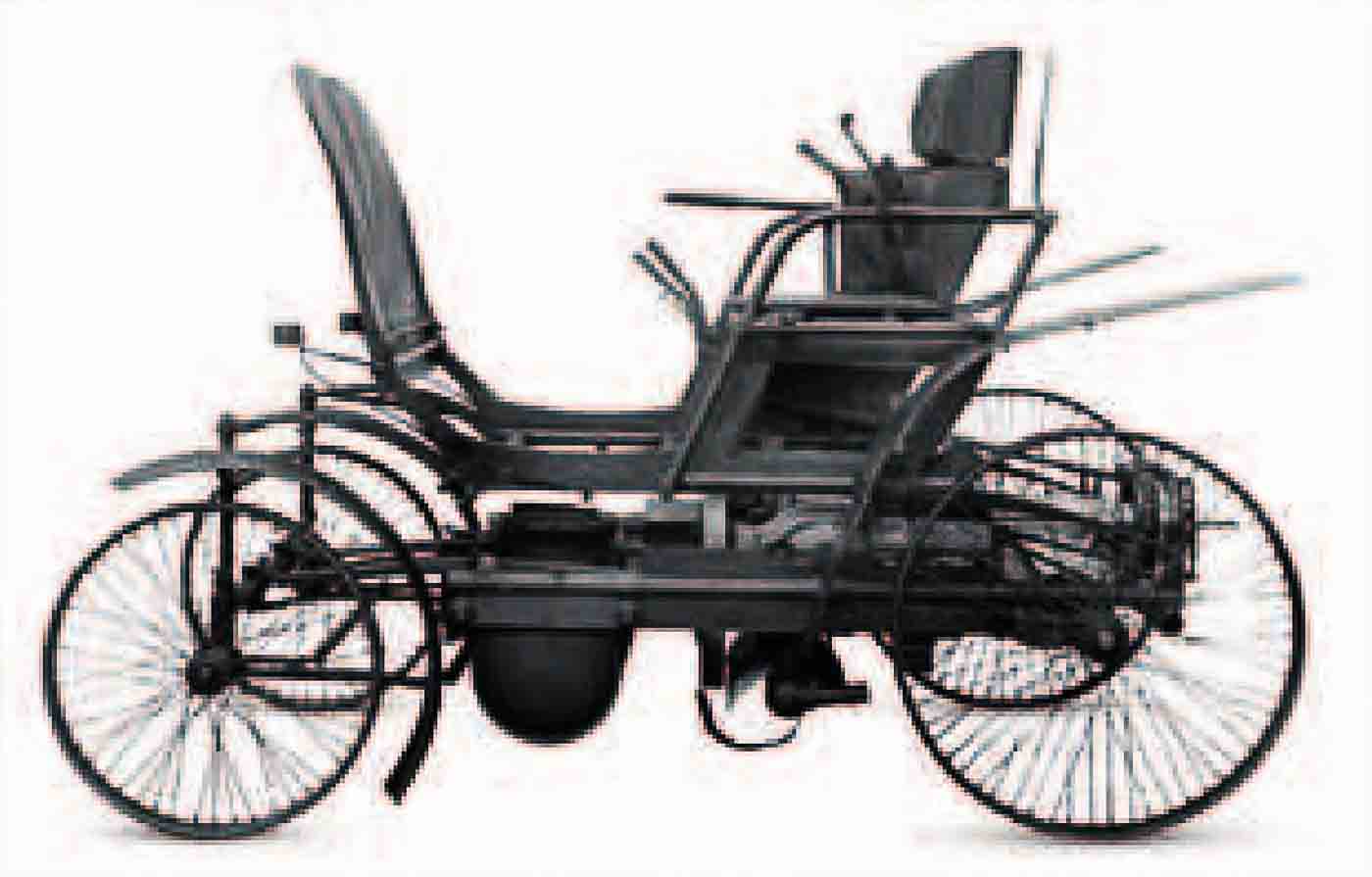
| Origin | UK |
| Engine | 3,459 cc, straight-two |
| Top speed | 20 mph (32 km/h) |
Brothers Frederick, George, and Frank Lanchester ran their first car in 1896 with a single-cylinder engine. The following year they built this car with a two-cylinder engine.
Columbia Electric, 1899
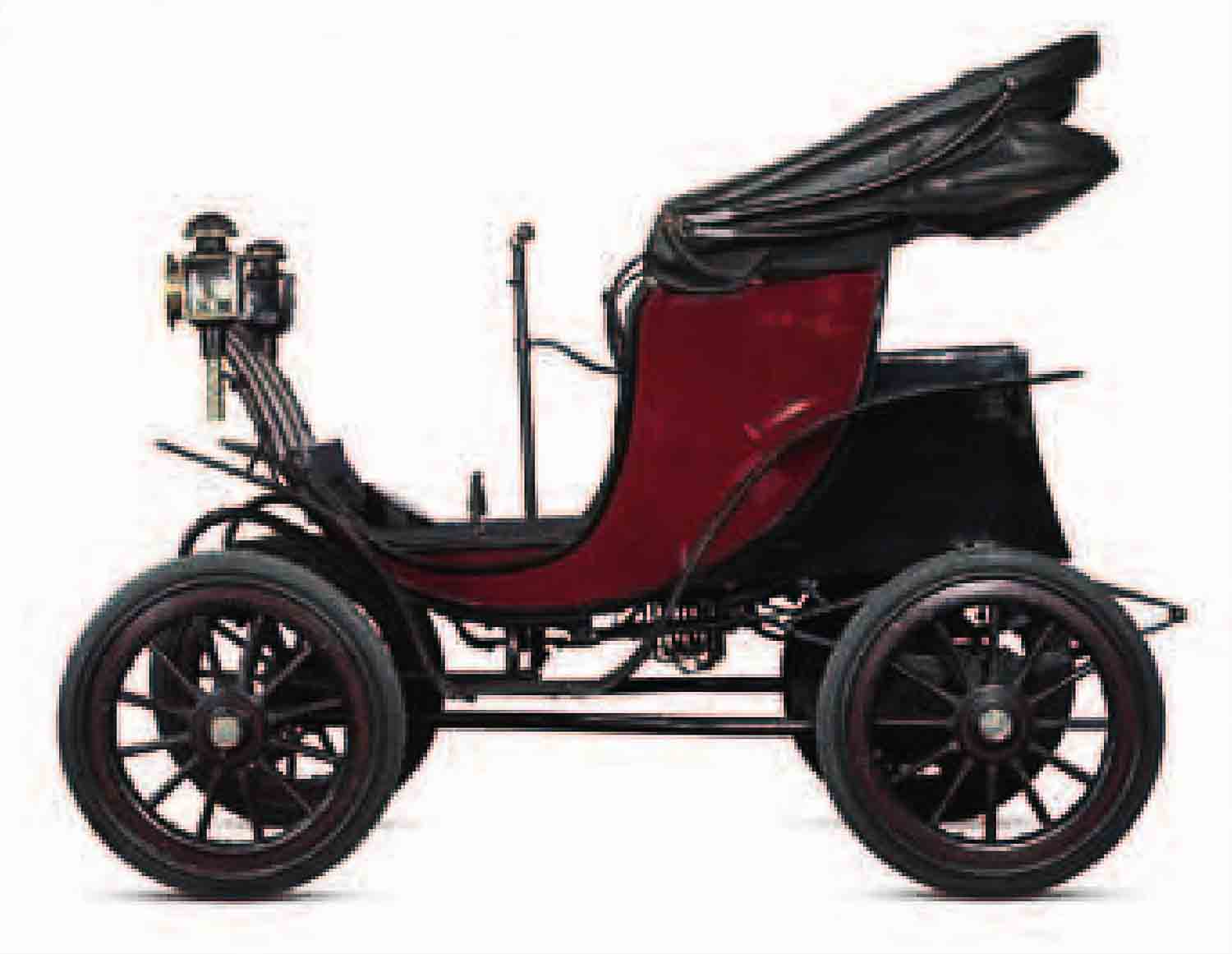
| Origin | USA |
| Engine | single electric motor |
| Top speed | 15 mph (24 km/h) |
At the start of the 20th century, when most gas-car makers were producing a handful of models a year, Columbia was building hundreds of smooth, silent electric cars
Sunbeam-Mabley, 1901
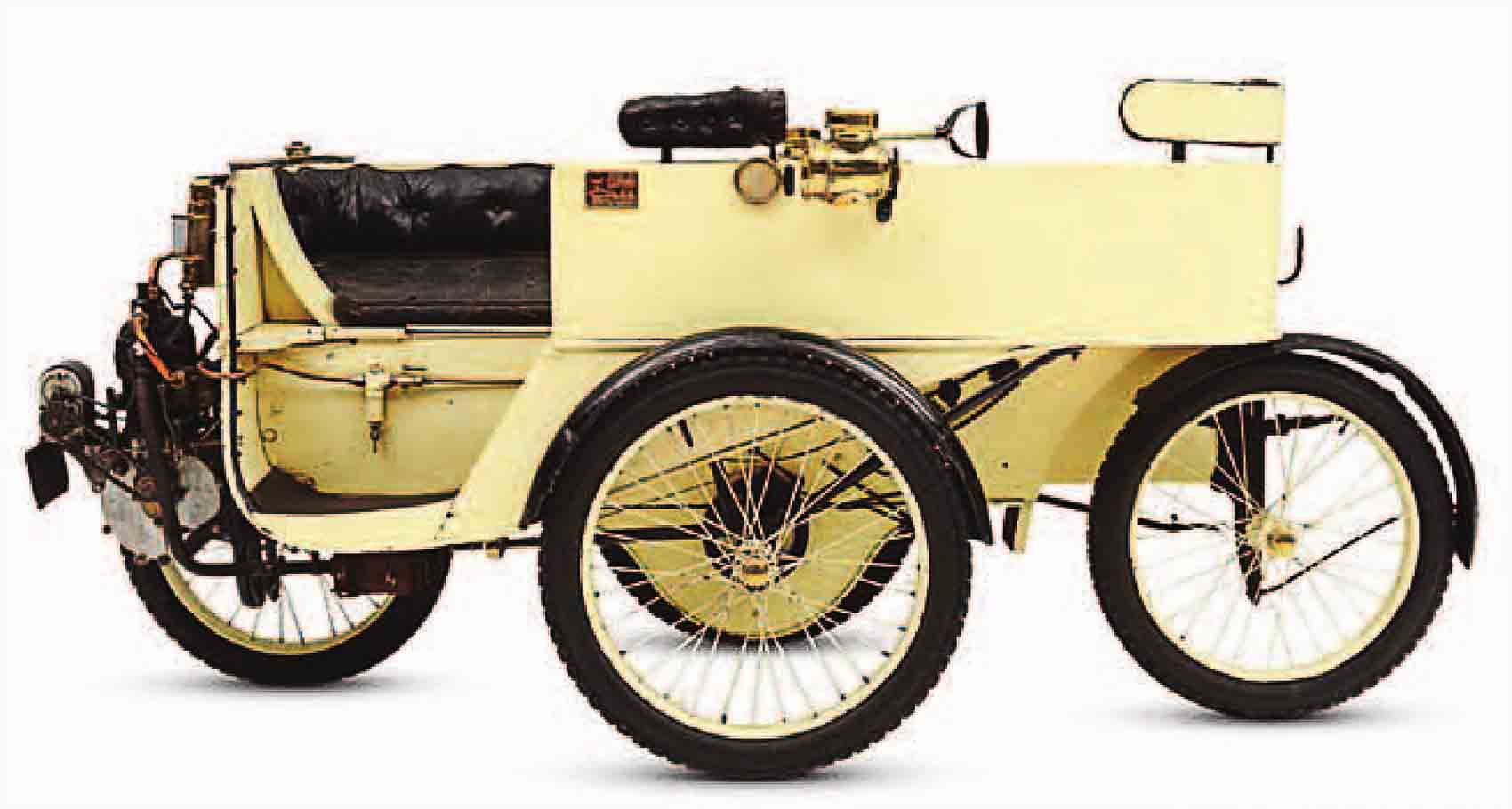
| Origin | UK |
| Engine | 230 cc, one-cylinder |
| Top speed | 20 mph (32 km/h) |
John Marston’s Sunbeam bicycle factory, along with Maxwell Maberley-Smith, developed this unusual vehicle with a seat either side of a central belt drive.
Clément-Gladiator Voiturette, 1899
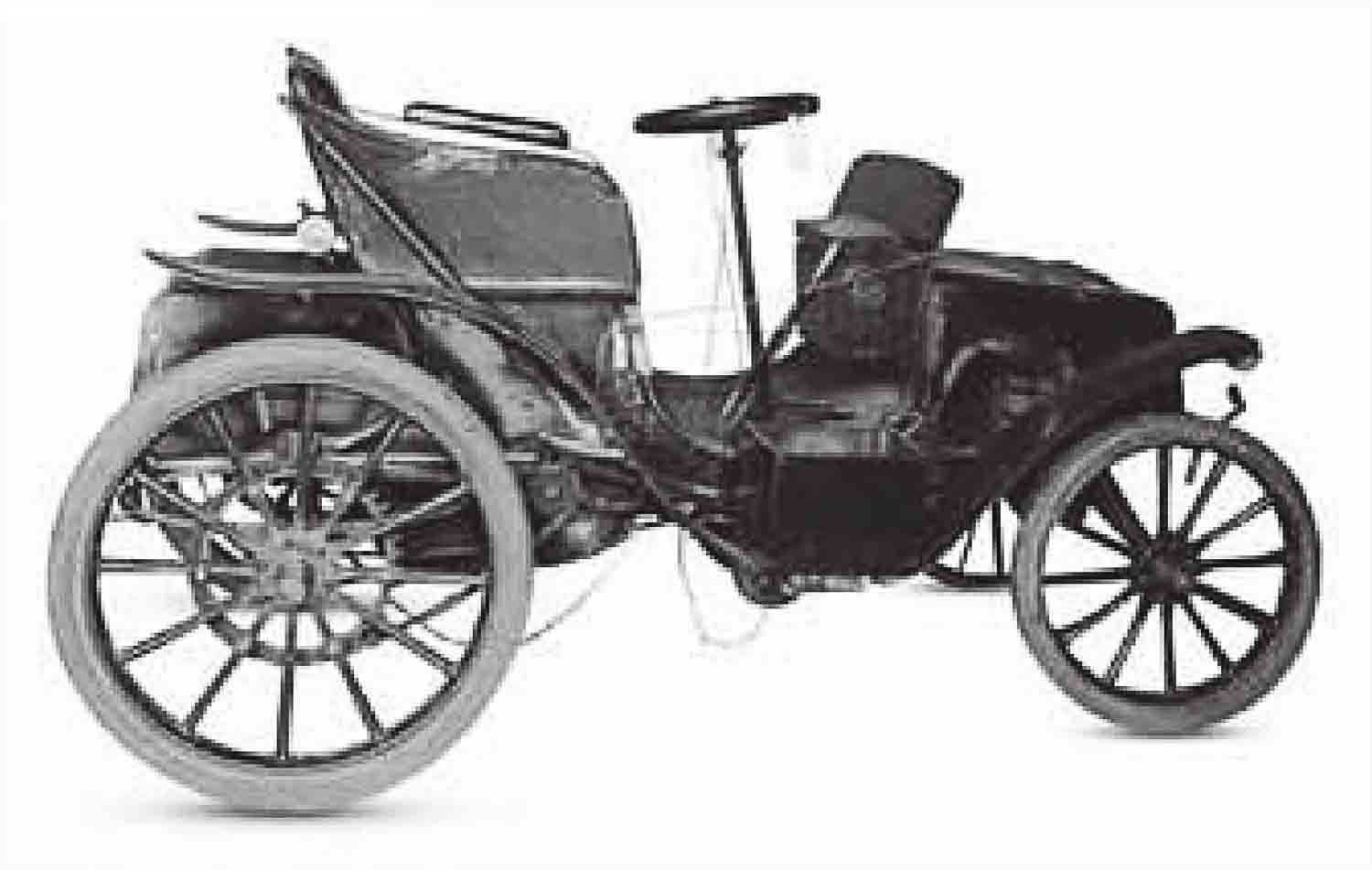
| Origin | France |
| Engine | 402 cc, one-cylinder |
| Top speed | 20 mph (32 km/h) |
Bicycle magnate Adolphe Clément saw the potential of the motor industry and promoted several marques. This simple voiturette had a 2.5 hp De Dion-type engine under the seat.
Panhard et Levassor Phaeton, 1891
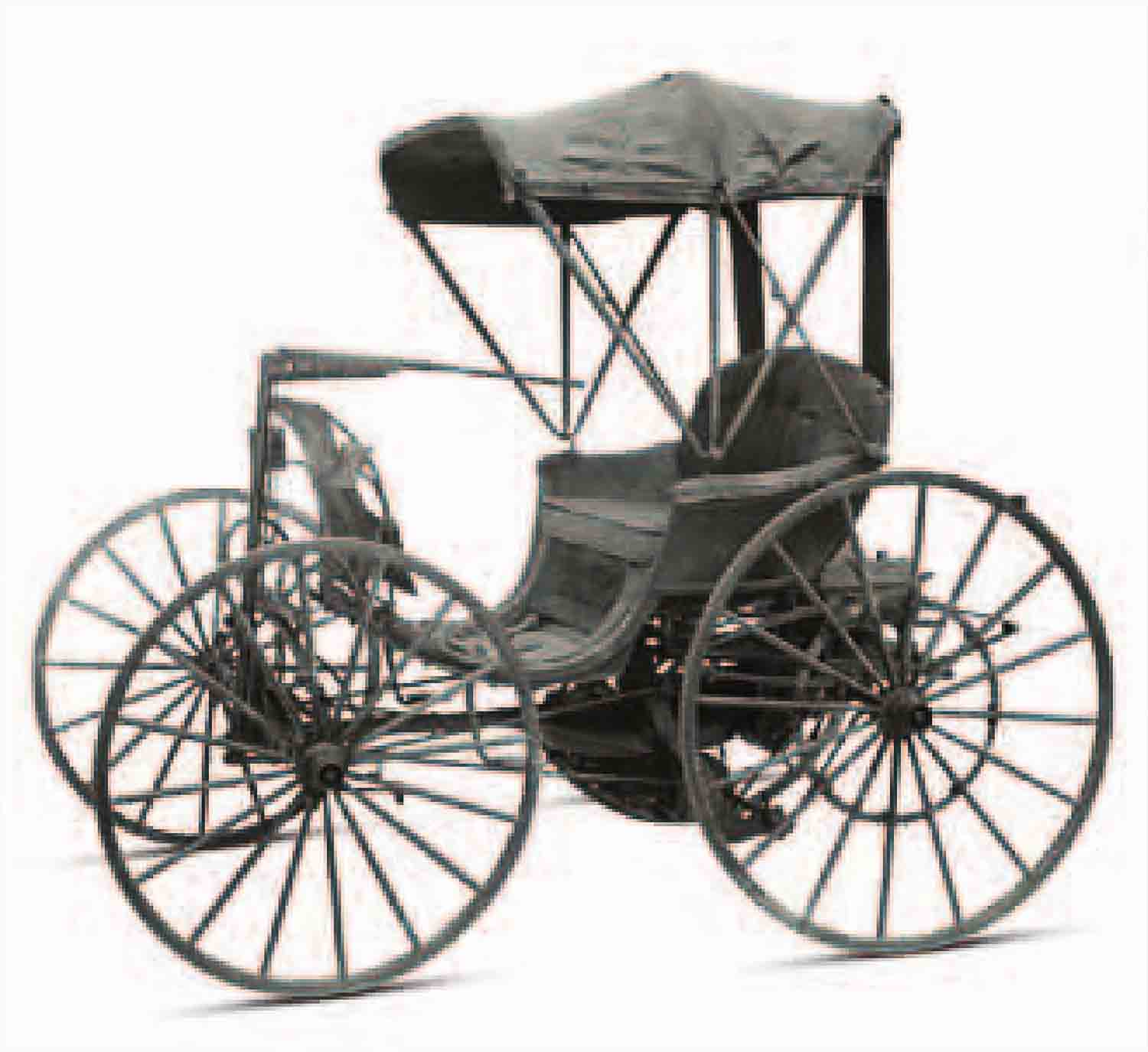
| Origin | France |
| Engine | 1,060 cc, straight-two |
| Top speed | 12 mph (19 km/h) |
Rene Panhard and Émile Levassor offered their first car in 1890, building a Daimler engine under license. They pioneered sliding gear transmission and front engine with rear drive among other modern features.
Duryea Motor Wagon, 1893
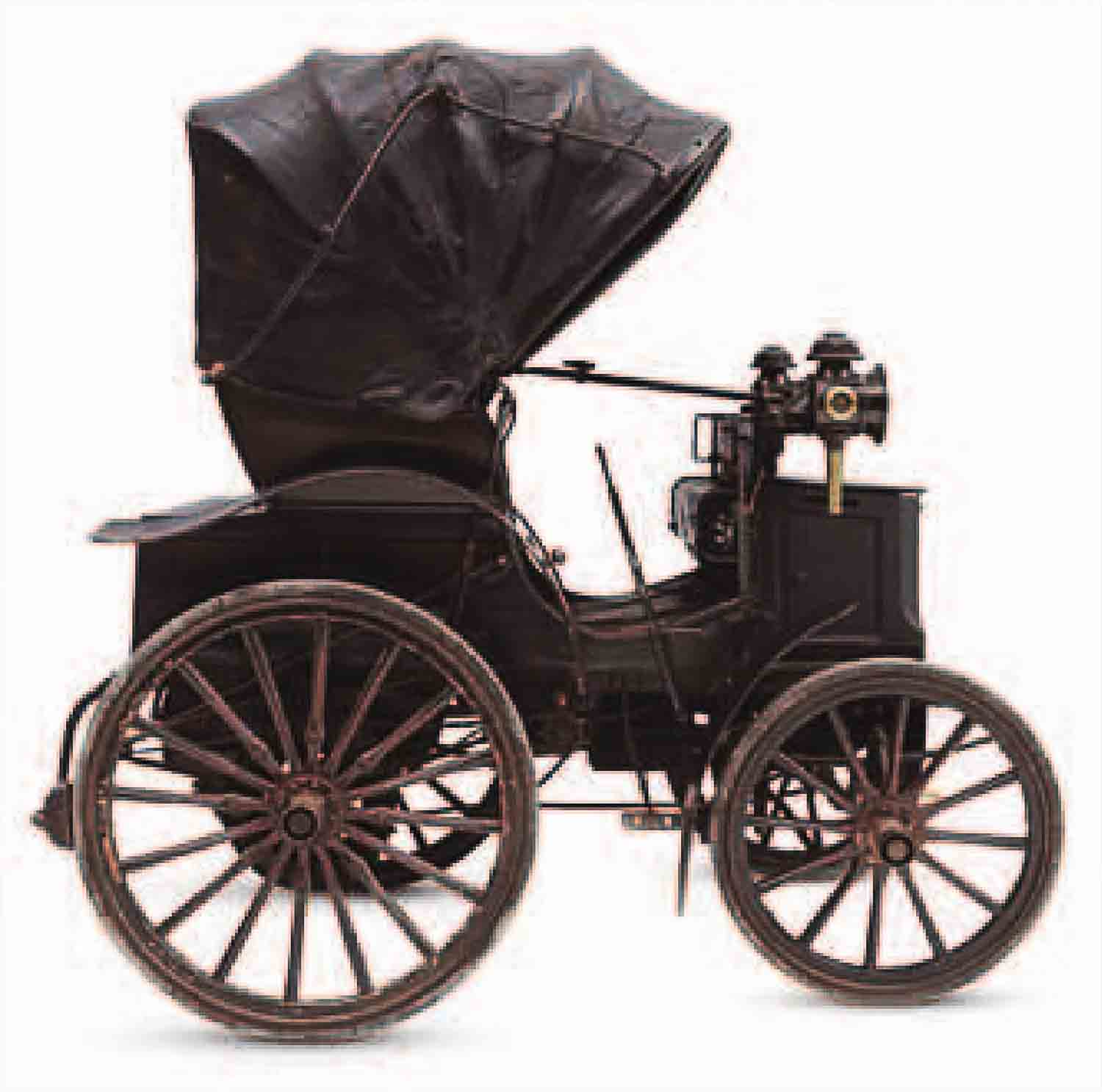
| Origin | USA |
| Engine | 1,302 cc, one-cylinder |
| Top speed | 12 mph (19 km/h) |
In 1893, bicycle makers Frank and Charles Duryea made the first successful gas-powered automobile in the United States. They also won the first U.S. motor race in 1895.
Goddu Tandem, 1897
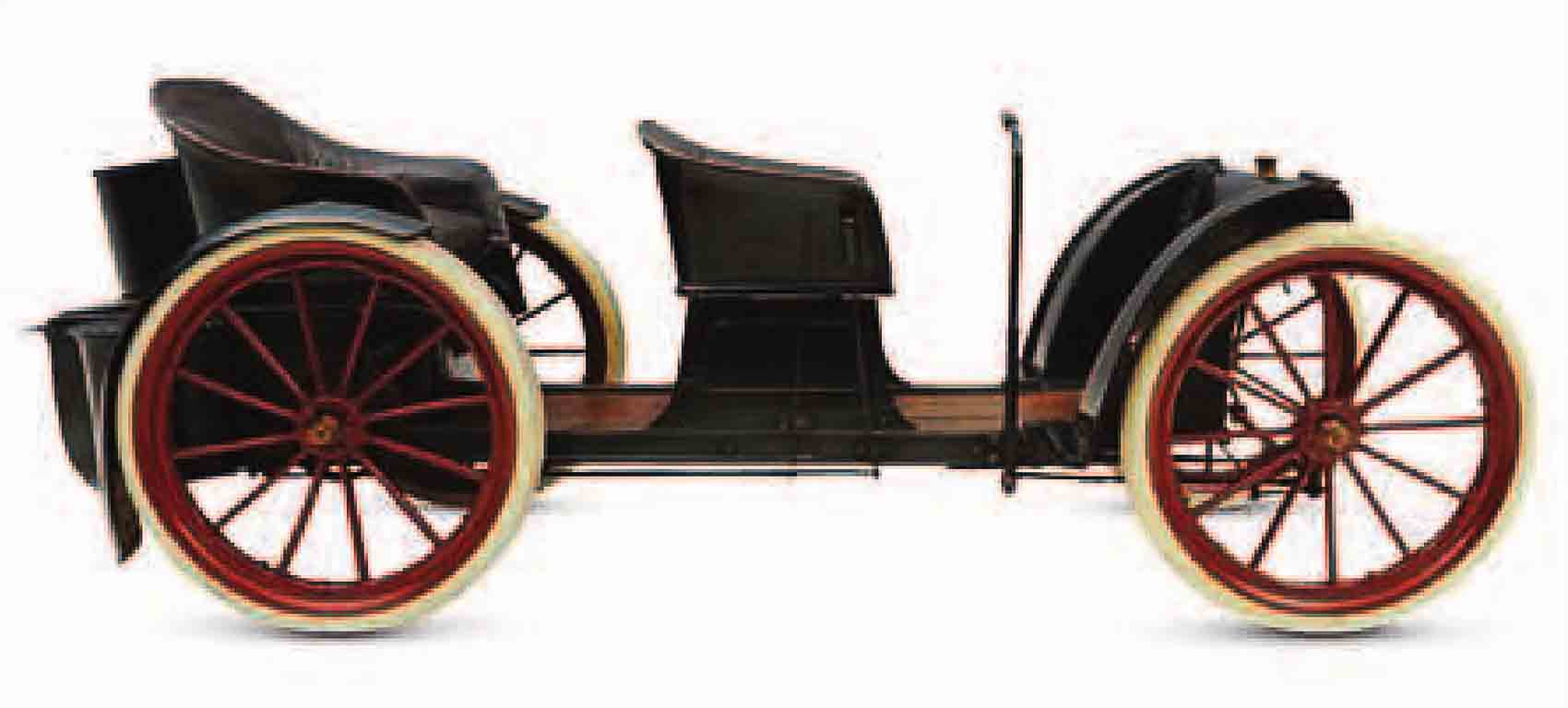
| Origin | USA |
| Engine | cc unknown, two-cylinder |
| Top speed | 30 mph (48 km/h) |
Inventor Louis Goddu made only a handful of cars, but pioneered features such as the overhead camshaft in a car that was exceptionally rapid for its time.
Arnold Benz, 1897
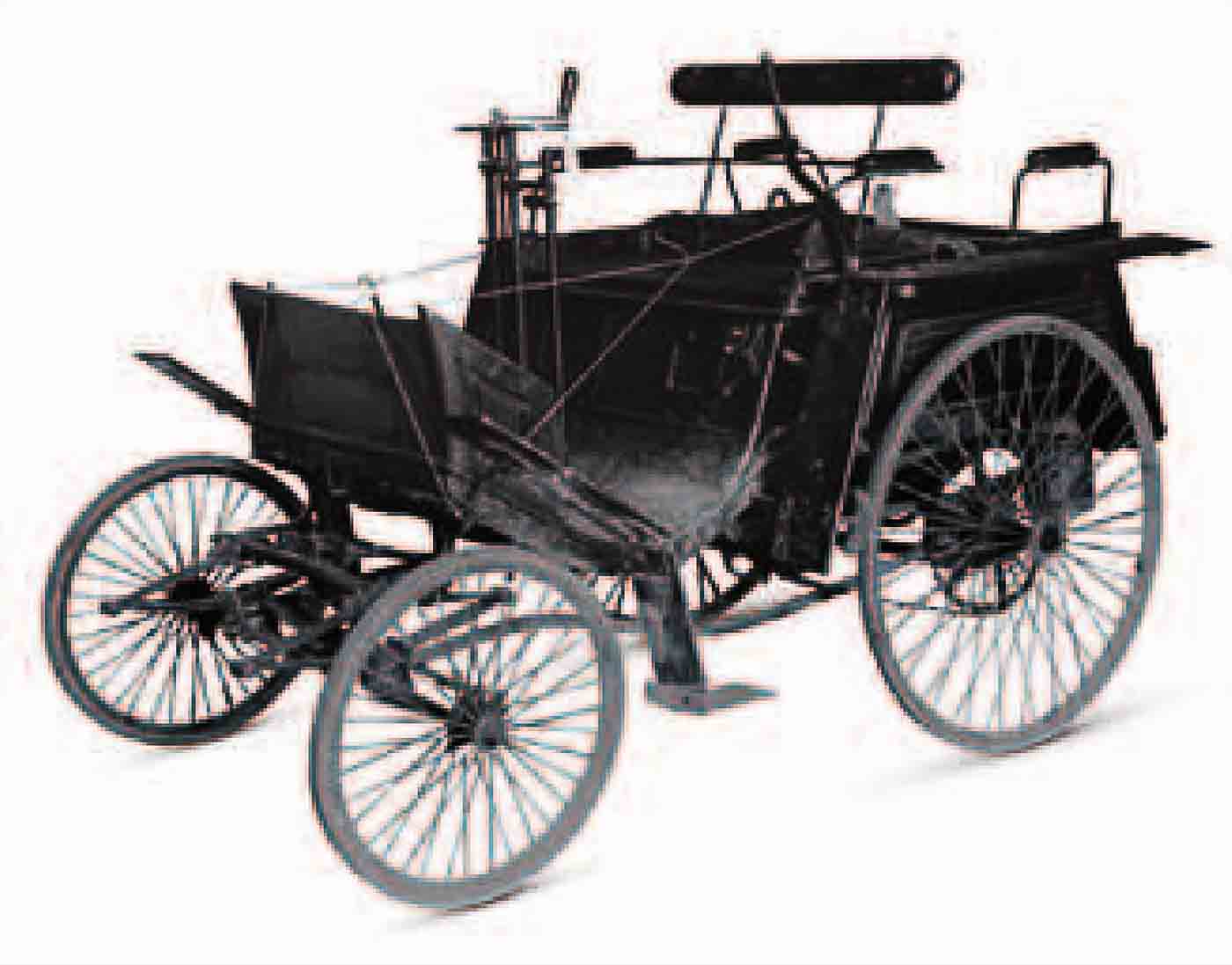
| Origin | UK |
| Engine | 1,190 cc, single-cylinder |
| Top speed | 16 mph (26 km/h) |
William Arnold & Sons built Benz-like cars with their own 1.5 hp engines. One was fitted with the first electric self-start dynamotor, which also assisted the engine on hills.
Bikkers Steam Car, 1907
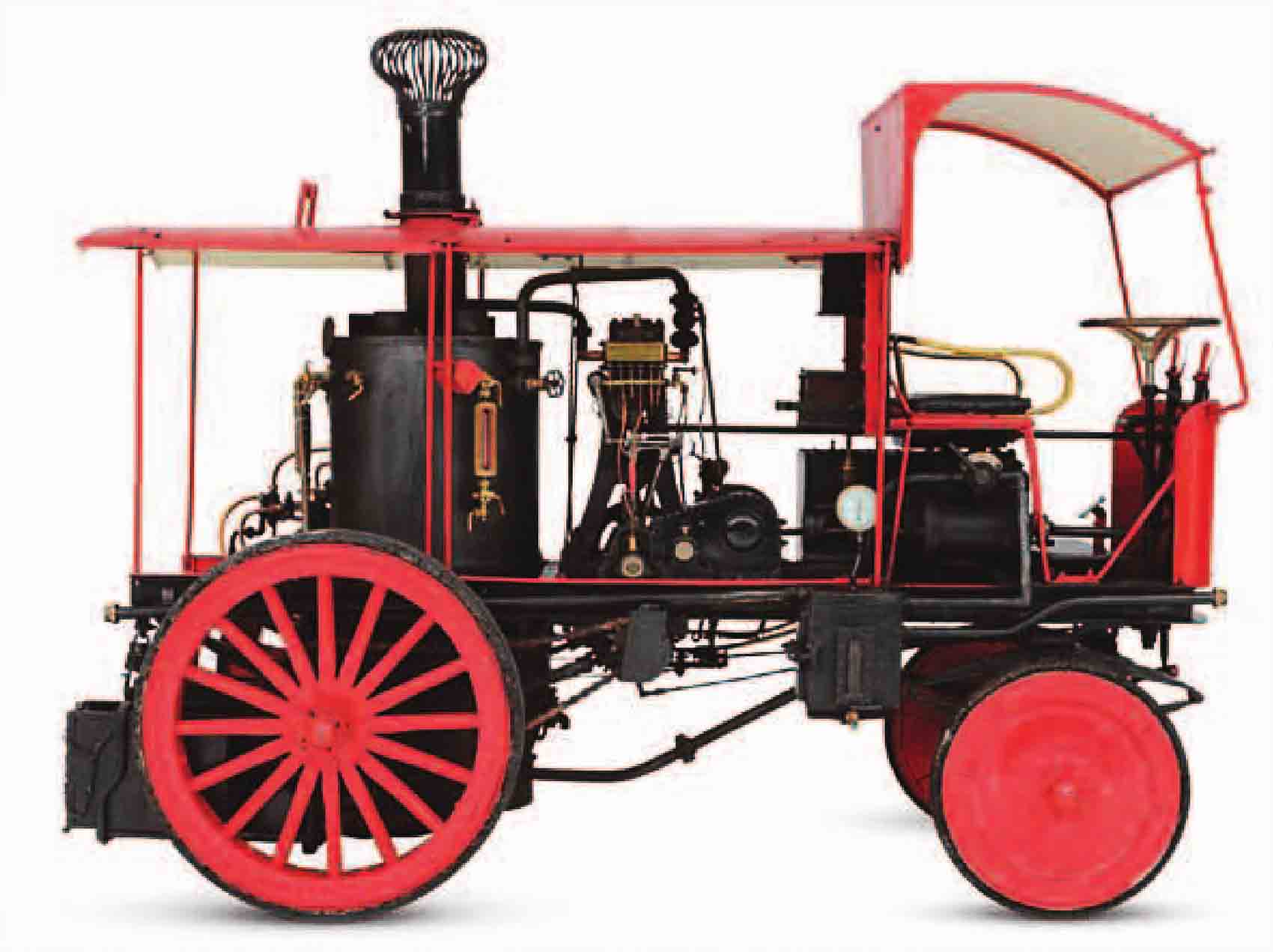
| Origin | Netherlands |
| Engine | steam boiler |
| Top speed | 10 mph (16 km/h) |
Better known for its steam-driven fire engines, Bikkers also made steam vehicles, such as this one, for cleaning cesspits. This is the oldest commercial vehicle in the Netherlands.
It is a quote. The Definitive Visual History Of The Automobile 2011




